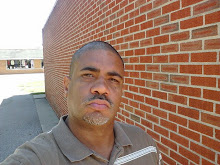Million Man March
My question is; as African American gay men will we be any closer to the main speaking platform this time then we were the last time?
I remember attending the first Million Man March some nine years ago. I lived in Atlanta and I had resigned myself to the fact that I would be attending as an observer, not a participant. As a black gay man I never got the word that "WE" were to be included in the festivities. I traveled north with the SCLC and as our bus got closer to D.C. we stopped at a rest stop and busloads of brothers from all over the country were there. As we pulled into D.C. the anticipation was palpable, and I was in awe and private overwhelmimg glee at the thousands of beautiful, strong, and proud black men. Once my eyes adjusted to this unique sea of brilliant brown light I started to see the magnificence of the gathering. All at once I finally, for the first time in my life, belonged to the black male spirit. It no longer mattered if you were straight or gay, young or old, rich or poor. Educated or not, light skinned or dark we were all brothers and we were bonding and falling in love with each other! After the march I read that Keith boykin had assembled a group of a hundred or so black gays and lesbians for a march within the march. I never saw the National Black Gay and Lesbian leadership Forum group. I didn't know they were there. They most certainly did not speak from the main podium!!
So, if Min. Farrakhans plan for a 10 year anniversary march comes to fruition; will African American gays and lesbians be invited to a place on the main podium? What has been the progression of the black GLBT movement over the past nine years? After the march we were all optimistic about not only the future of black America but but black gay America as well. Keith Boykin wrote on his site 10/23/95:
"Hundreds of openly black gay men and a handful of lesbians joined together last Monday(10-16-95) in an historic openly gay contingent in the Million Man March, proudly representing the tens of thousands of black gay men who were there but could not be a part of our group. We began to chant: We're black! We're gay! We wouldn't have any other way! Still no one in the crowd of people we approached reacted critically. The lesson is that when we believe in ourselves enough to come out of the closet and be open about who we are as black gay men and lesbians, our community not only accepts us, they respect us more"!
What became of all that optimism, hope, and pride? We still need to have a dialogue with the black family. In 2004 none of the issues that faced black gay America have been eradicated. HIV/AIDS is still ravishing our community and the rates of infection have doubled. Homophobia in the black community , especially the black church, has worsened. This point is evidenced by the insurgence of black bishops and pastors who have spoken out publicly alongside the the largely caucasian fundementalist right against same-sex benefits and marriage. The steady stream of negative stereotypical representations of black gays and lesbians eminating from Hollywood also speaks to black Americas misunderstanding of our community. Besides all of that racism still exists within the gay community in general. We need to have a voice on the 10th anniversary of the Million Man March. We need to be involved in the planning of such an event. We need a speaker to represent us and we need to make our voices heard to marchers, march organizers, and the media on that day. African American gays and lesbians are not hinderances to the black pride unity movement, we are crucial to its success!!

